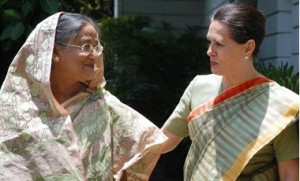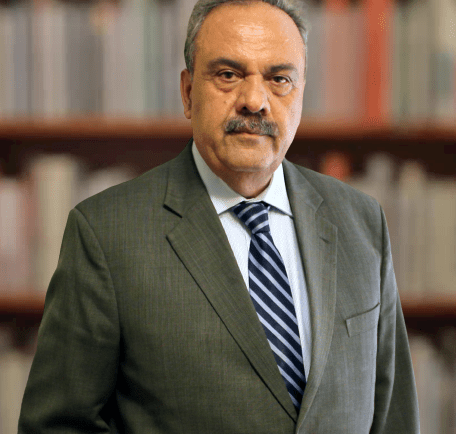Newspaper Article 13/01/2014
Bangladesh’s general election held on January 5, present an interesting case study. The vote’s credibility had been undermined even before the polling day, as 153 Awami League (AL) members or its allies were declared elected unopposed to a house having 300 elected members. Since October 2013, around 180 people have died in electoral violence.  At least 26 people were killed on the polling day. The entire process was compromised by the absence of Khalida Zia’s Bangladesh Nationalist Party (BNP) and 20 other opposition parties. In defiant comments the day after her re-election, Prime Minister Hasina Sheikh accused the BNP of making a mistake by shunning the vote. In a country that has experienced nearly 20 coups, people are questioning the legitimacy of the new legislature and pondering over the likelihood of another coup.
At least 26 people were killed on the polling day. The entire process was compromised by the absence of Khalida Zia’s Bangladesh Nationalist Party (BNP) and 20 other opposition parties. In defiant comments the day after her re-election, Prime Minister Hasina Sheikh accused the BNP of making a mistake by shunning the vote. In a country that has experienced nearly 20 coups, people are questioning the legitimacy of the new legislature and pondering over the likelihood of another coup.
Politics in Bangladesh is approached as a zero sum game between the AL and the BNP. Elections have not only demonstrated the peoples’ lack of confidence in the government but also proved that, in an environment of mistrust, free, fair, credible, peaceful and participatory elections cannot be held without a non-party neutral government and an independent election commission. As per the survey conducted by Daily Star and Asia Foundation in September 2013, 77 percent of respondents supported elections being held under a neutral caretaker government.
Khaleda has accused Hasina of murdering democracy. It is estimated that turnout was a dismal 22 percent. In at least 41 polling centres, not a single voter showed up. Election commission has acknowledged that no election took place at 570 polling stations. Prior to the election, opposition mobs had set fire to at least 200 polling booths. Attackers torched at least 127 school buildings overnight before the voting began; nearly 600 polling stations were attacked. Voting was suspended in at least 390 of polling centres because of attacks. The Daily Star, which is sympathetic to the AL, commented: “AL has won a predictable and hollow victory which gives it neither a mandate nor an ethical standing to govern effectively.”
The BNP called for the poll boycott over the question of an interim government. It wanted a non-party caretaker government to oversee elections, a constitutional requirement until 2011 when an AL-dominated parliament amended the constitution to do away with this provision. In May 2011, the Supreme Court upheld the constitutional amendment but declared that the next two elections could be held under a caretaker administration. Hasina simply ignored the court ruling.
Hasina has often said that she is opposed to non-party caretaker governments overseeing elections as she is against power being vested in “unelected” people. The government created an all-party interim government, which it headed; BNP opted out of that arrangement. However, neither Hasina nor Khaleda have much credibility on caretaker governments overseeing the elections. Each has demanded a neutral caretaker when in opposition, only to oppose this when in power.
Earlier, the AL government had sought to weaken the opposition through a crackdown on Jamaat-e-Islami (JI), the country’s largest Islamist party, which was the BNP’s main ally.  The government last year supported a case brought in the High Court that resulted in banning of the JI on the grounds that its program contravened the country’s secular constitution. The AL’s claim to be upholding the “secular fabric” of Bangladeshi society is simply a political manoeuvre; the party had no political qualms about allying itself with the JI during the 1996 general elections.
The government last year supported a case brought in the High Court that resulted in banning of the JI on the grounds that its program contravened the country’s secular constitution. The AL’s claim to be upholding the “secular fabric” of Bangladeshi society is simply a political manoeuvre; the party had no political qualms about allying itself with the JI during the 1996 general elections.
The European Union, the United States and the Commonwealth did not send observers to monitor what they considered a flawed vote. State Department spokeswoman Marie Harf said Washington was disappointed that the major parties had not reached a consensus on a way to hold free, fair and credible elections. The United States has also called for a new vote that would “credibly express the will” of the people. The UNSG Ban Ki-moon was “saddened by the loss of life”, his spokesman said. He criticised both the main parties and called for them “to resume meaningful dialogue and to urgently address the expectations of the people of Bangladesh for an inclusive political process”.
Some political experts believe that the main reason the AL and the BNP could not reach a compromise was due to the ongoing trial of war-time criminals in Bangladesh’s sham “International Crimes Tribunal”. The tribunal was set up almost four years ago to prosecute those who were allegedly involved in atrocities during the war of 1971. The tribunal that received world wide condemnation for flawed judicial process has already sentenced to death around six senior citizens. Of these, Jamaat leader, Abdul Quader Mollah was executed prior to elections, and there are others who are on trial. This has created an uncalled for anti-Pakistan frenzy in Bangladesh. For the AL, keeping up the division between pro and anti-liberation forces is critical for sustaining its political grip. The Daily Star writes that “it would also be unfair, and indeed unwise to draw a broad brush of ‘anti-liberation or antidemocratic’ on all those who did not participate in the election. We do not believe that nearly 70 percent who chose not to vote are anti-liberation.”
An important actor in the unfolding drama in Bangladesh is the military, which has not been averse to political intervention in the past. Now as Bangladesh enters a new phase of turmoil, questions are being raised over what role the military will play in the coming months. While the military is reluctant to get into the politics at the moment, it could step in if the situation deteriorates further, and there is adequate domestic support and international backing.
The “Great Game” dimension has it that the US is concerned to undermine Chinese influence in Bangladesh as part of its broader “pivot to Asia” aimed at countering China diplomatically and encircling it militarily.  American right-wing think tank, the Heritage Foundation, has pointed out: “China is slowly building up ties to Bangladesh and competing with India for dominance in the region.” The report noted that Bangladesh’s relations with India had improved under the AL and advised that the US should “facilitate strong India-Bangladesh ties since New Delhi’s influence in the country will help blunt the growing Chinese presence.”
American right-wing think tank, the Heritage Foundation, has pointed out: “China is slowly building up ties to Bangladesh and competing with India for dominance in the region.” The report noted that Bangladesh’s relations with India had improved under the AL and advised that the US should “facilitate strong India-Bangladesh ties since New Delhi’s influence in the country will help blunt the growing Chinese presence.”
Bangladesh must look inwards. No one stopped Bangladesh from bringing the alleged perpetrators of rapes and murders during the 1971 war to justice for 42 long years. The reason why the AL chose to do it now is because Teesta Water sharing and the Indo-Bangladeshi land boundary agreements are yet to come to fruition. Hasina faces accusations that she has not been reciprocated by India. Best way to come out of the accountability net for its failed pro India foreign policy is to create an anti-Pakistan hype.
Over the years Pakistani businessmen motivated by business interests and driven by the desire to revive old relations with Bangladesh, have invested their capital in Bangladesh. More than ten thousand Pakistanis have invested billions of dollars in Bangladesh Unfortunately domestic politics in BD has created an anti-Pakistan environment. Presently Pakistani investors in BD are faced with a constant state of uncertainty fearing irreversible setback to their business due to revengeful politics of the AL government.
Hasina may have seriously miscalculated in pressing ahead with the election despite opposition’s boycott. The elections were supposed to bring relief to the people of Bangladesh. But an election result without a popular mandate raises more questions than it answers. If a military intervention is to be avoided, the only hope is an inclusive fresh election. We wish the people of Bangladesh well; hopefully, they will find a peaceful solution to their current turmoil which is acceptable to the entire nation.


